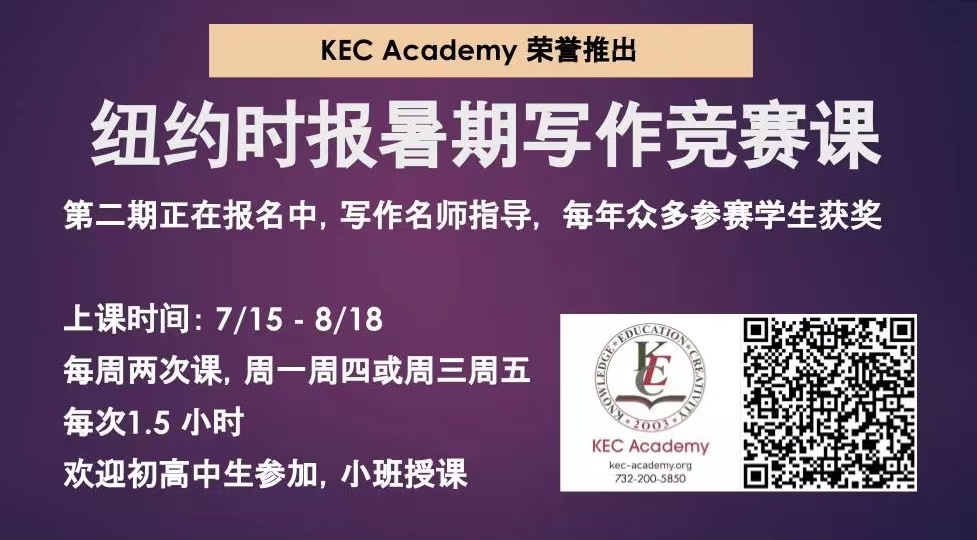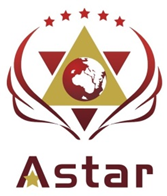白宫取消60亿「诈骗大学」贷出学贷 估20万人受惠
世界新闻网
6/24/2022

拜登政府23日宣布取消60亿元「诈骗大学」贷出的助学贷款,预估20万人受惠; 教育部长卡多纳表示,这是「对各方都公平、公正」的解决方案。
所谓的「诈骗大学」全都是营利为目的的学校和职业训练机构,总共有150多家,包括「梦中心」经营的艺术学院和职涯教育公司经营的学校。前者于2019年突然倒闭,后者最盛时全国设有100多所职业训练中心,学生达数万人,仍在经营的包括凤凰城大学(University of Phoenix)、大峡谷大学和德福瑞大学(DeVry University)。
申请免除积欠这些学校贷款的人,最早七年前就提出,现在可以全部免还,包括12.8万曾收到川普政府通知不得免还的人,已经偿还部分贷款的人,可以拿回缴款。
审理这项方案的加州北区联邦法院说,有强烈的迹象显示,这些学校举止不当,有些确有证据可以证明,即使仅是指控,也「可以相信为真」。
本方案还须经过联邦法院法官裁定,才算最后定案,但受惠人纷纷表示欢迎,也松了一口气;其中有人在脸书群组里面写到,「这大概是很久以来我所见最美妙的一件事了。我的学校被列为坏蛋,我的债也被注销了。」
23日提出的解决方案大致解决了苦恼了三任总统的一大问题,因为许多从类似学校毕业的学生向政府申诉,他们接受的是二流教育,却背上庞大的学贷。
10年前,在政府大力取缔下,好几家连锁大学声明破产,但学校倒闭后,学生积欠的债务仍然缠身。
欧巴马政府曾动用「借款人保护」法规,让就读违犯消费者保护法或行为极为不当学校的人,免除学贷,但川普任用的教育部长狄沃斯却以政府不该乱花钱为由,取消前政府的优惠政策,任申请案无限堆积,还在任期最后一年,下令所属官员,发出前述「不得免还」通知。
拜登政府再度引用「借款人保护」法规,取消这150多所骗钱大学、训练所的「受害学生」助学贷款。
律师涉移民诈欺 华女遭受牵连
世界新闻网
5/16/2022

一名在2013年通过申请政治庇护获得绿卡的华女,由于当时委托的移民律师涉嫌移民诈欺,使得该华女也遭调查;过去几年国土安全部(DHS)曾多次要求移民法官重审由涉诈欺的律师所处理的1万3500件政庇案,但均未果,不久前移民上诉委员会(Board of Immigration Appeals,简称BIA)准许了国安部对该华女政庇案的重审动议(motion to reopen),为众多案件中首个被批准重审的案例。
根据法庭文档,一名移民法官在2013年11月26日批准了该名华女的政庇案,当时国安部并未提出异议,但在2017年,国安部提出动议要求重审该案,因为帮该华女申请政庇的律师在2014年被定罪为移民诈欺,认为华女获得政庇身分的正当性存疑,不过该动议却遭到移民法官驳回。
不过陪审团表示,该个别华女的案件与移民律师之前被和有诈欺罪的案例相似,凭着该事实,就能要求重审。
移民上诉委员会在一份声明中表示,在移民法官批准该华女的政庇案时,其委托律师尚未被判涉嫌移民诈欺,而根据该律师的定罪纪录显示,华女的准备申请文档期间,与委托律师承认诈欺的时间重叠,因此该委员会决定重审该案,并交由移民法官重新评估华女政庇身分的正当性。
该华女目前的委任律师罗曼(Meer Rahman)表示,在2012年纽约有多达30位移民律师、法律助理和翻译因为协助华人通过申请材料造假以获得政庇资格,遭到逮捕,此后他也成为其中四个客户的委任律师。
罗曼表示,这些客户找上了错的律师,是因为他们不知道哪些可以相信、哪些不能相信,而律师被判移民诈欺,也不代表这些客户的政庇身分就完全是不可信。
他说,当时这名华女找上他时,他曾经与她面谈,「我相信这个客户的可信度,而且当时我们也打赢了这场官司」;如今案件将重审,罗曼表示,过了这么多年国安部才突然认为当初移民法官的判决是错的,提出重审要求,「这是不对的」。
罗曼对案子表示有信心,并说,「如果客户决定要在联邦第二巡回法院(United States Court of Appeals for the Second Circuit)挑战陪审团的决定,我们也会维持客户原本就已经获得的法律缓解(Relief)。」
移民局积件严重 工作许可过期有效
世界新闻网
5/04/2022

美国公民及移民服务局(U.S. Citizenship and Immigration Services, USCIS)3日宣布新规,持有已过期或即将过期工作许可的绝大多数移民,效期届满之后将可根据原文档继续工作一年半。这项新规将从4日起生效,用意在于解决移民局规模空前、高达150万件的工作许可申请积案;如果积件问题没能排除,数十万移民将无法在美合法工作,就业市场的劳力短缺问题也将更恶化。
华尔街日报(WSJ)报导,这项新规将让工作许可已经过期或未来30天内即将过期的8万7000名移民立即受惠;整体而言,最多有42万移民将因为这项新规而受益,工作许可继续有效,等于保住了合法工作的资格。
一名移民局官员说,移民局需要时间,才能让申请作业的处理速度恢复正常,甚至获得改善,「没有人应该因为我们需要更多作业时间而因此失去工作资格」。
数以百万计在美移民都有资格申请工作许可,绿卡申请人与向美国申请庇护的移民都包括在内,还有H-1B工作签证持有人的配偶以及俗称「梦想生」(Dreamers)的「童年抵美暂缓遣返计划」(Deferred Action for Childhood Arrivals,DACA)保护对象。
持有工作许可的移民在美国各行各业服务,从科技业、医疗产业到卡车运输都包括在内。过去几个月间移民劳工的减少,已让美国雇主感到压力,忙着招聘人手。根据统计,美国目前有大约1150万个职缺等待填补。
美国商会(U.S. Chamber of Commerce)移民政策主任巴塞利斯(Jon Baselice)表示,雇主对移民局的新规表示欢迎。
巴塞利斯说:「许多出现人力短缺的公司,不得不让优秀员工离开,只因为工作许可申请积件严重,如此状况让缺工问题仿佛雪上加霜。」
符合工作许可延期资格的移民,可以在工作许可到期之前六个月申请更新。绝大多数情况下,工作许可在截止日期之后180天依然有效,这是政府多年前设下的保护机制,确保移民工作许可申请处理不会出现时间落差或政府部门耽搁的影响。然而,规模空前的积件却让工作许可延期申请作业时间大幅拖长,导致移民因此失去合法工作资格。

USCIS Increases Automatic Extension Period of Work Permits for Certain Applicants
Release Date: 05/03/2022
WASHINGTON—U.S. Citizenship and Immigration Services (USCIS) announced a Temporary Final Rule (TFR) that increases the automatic extension period for employment authorization and Employment Authorization Documents (EADs), available to certain EAD renewal applicants, to up to 540 days. The increase, which will be effective immediately on May 4, 2022, will help avoid gaps in employment for noncitizens with pending EAD renewal applications and stabilize the continuity of operations for U.S. employers.
“As USCIS works to address pending EAD caseloads, the agency has determined that the current 180-day automatic extension for employment authorization is currently insufficient,” said USCIS Director Ur M. Jaddou. “This temporary rule will provide those noncitizens otherwise eligible for the automatic extension an opportunity to maintain employment and provide critical support for their families, while avoiding further disruption for U.S. employers.”

For several years, USCIS has been in a precarious financial situation that has impaired the efficient completion of caseloads. The COVID-19 pandemic exacerbated these challenges in 2020, in addition to a hiring freeze and furlough threat leading to workforce attrition and severely reduced capacity. In 2021, before USCIS could recover from these fiscal and operational impacts, there was a sudden and dramatic increase in EAD initial and renewal filings, as explained in detail in the TFR.
The TFR, which only applies to those EAD categories currently eligible for an automatic up to 180-day extension, will temporarily provide up to 360 days of additional automatic extension time (for a total of up to 540 days) to eligible applicants with a timely-filed Form I-765 renewal application pending during the 18-month period after publication of the TFR while USCIS continues to work through pending caseloads that were exacerbated by the COVID-19 pandemic. This timeframe will allow USCIS an opportunity to address staffing shortages, implement additional efficiencies, and meet Director Jaddou’s recently announced goal of achieving a three-month cycle time for EAD applications (generally comparable to a median three-month processing time) by the end of FY23. Beginning Oct. 27, 2023, automatic extensions of employment authorization and EAD validity will revert to the up to 180-day period for those eligible applicants who timely file Form I-765 renewal applications.

Noncitizens with a pending EAD renewal application whose 180-day automatic extension has lapsed and whose EAD has expired will be granted an additional period of employment authorization and EAD validity, beginning on May 4, 2022 and lasting up to 540 days from the expiration date of their EAD, such that they may resume employment if they are still within the up to 540-day automatic extension period and are otherwise eligible. Noncitizens with a pending renewal application still covered under the 180-day automatic extension will be granted an additional up to 360-day extension, for a total of up to 540 days past the expiration of the current EAD. Noncitizens with a pending renewal application and valid EAD on May 4, 2022, or who timely file an EAD renewal application before Oct. 27, 2023, will be granted an automatic extension of up to 540 days if their EAD expires before the renewal application is processed.
The automatic extension generally will end upon notification of a final decision on the renewal application or the end of the up to 540-day period (meaning, up to 540 days after the expiration date on the applicant’s facially expired EAD), whichever comes earlier.
Certain noncitizens who are in the United States may file a Form I-765, Application for Employment Authorization, with USCIS to request employment authorization and an EAD. Other noncitizens whose immigration status authorizes them to work in the United States without restrictions may also use Form I-765 to apply for an EAD that shows such authorization.
For more information on USCIS and its programs, please visit uscis.gov or follow us on Twitter, Instagram, YouTube, Facebook, and LinkedIn.
Last Reviewed/Updated: 05/03/2022

USCIS Implements Risk-Based Approach for Conditional Permanent Resident Interviews
Release Date: 04/07/2022
WASHINGTON—U.S. Citizenship and Immigration Services (USCIS) today announced a policy update to adopt a risk-based approach when waiving interviews for conditional permanent residents (CPR) who have filed a petition to remove the conditions on their permanent resident status.
Effective immediately, new criteria will guide USCIS officers on when to waive interviews for CPRs who filed a Form I-751, Petition to Remove Conditions on Residence. This update replaces previous agency guidance that required all CPRs to undergo an interview if they obtained CPR status via consular processing.
“Implementing a risk-based strategic approach to the CPR-interview process will increase efficiencies that improve processing times, allow for a better use of agency staffing resources, and help reduce the pending caseload while still maintaining procedures to identify fraud and protect national security,” said USCIS Director Ur M. Jaddou. “This update is consistent with agency priorities to break down barriers in the immigration system, eliminate undue burdens on those seeking benefits, and effectively respond to stakeholder feedback and public concerns.”
Healthcare Certification and ESL Programs
Prior policy requiring mandatory CPR interviews did not prove to be an efficient use of USCIS staffing resources. Under this policy update, USCIS may waive the interview requirement if the agency officer determines there is sufficient evidence about the bona fides of the marriage, the joint-filing requirement is eligible for a waiver (if applicable), there is no indication of fraud or misrepresentation in supporting documents, there are no complex facts or issues to resolve, and there is no criminal history that would render the CPR removable.
A noncitizen who obtains permanent resident status based on a marriage that began less than two years before obtaining that status receives permanent resident status on a conditional basis for two years. To remove the conditions on permanent resident status, family-based CPRs generally must file a Form I-751 within the 90-day period before the two-year anniversary of when they obtained CPR status.
Visit the Policy Manual for Comment page to comment on this update.
For more information on USCIS and its programs, please visit uscis.gov or follow us on Twitter, Instagram, YouTube, Facebook, and LinkedIn.
Last Reviewed/Updated: 04/07/2022
USCIS: FY 2023 H-1B Cap Season Updates
Release Date: 03/29/2022
H-1B Initial Electronic Registration Selection Process Completed
U.S. Citizenship and Immigration Services has received enough electronic registrations during the initial registration period to reach the fiscal year (FY) 2023 H-1B numerical allocations (H-1B cap), including the advanced degree exemption (master’s cap). We randomly selected from among the registrations properly submitted to reach the cap. We have notified all prospective petitioners with selected registrations that they are eligible to file an H-1B cap-subject petition for the beneficiary named in the applicable selected registration.
Registrants’ online accounts will now show one of the following statuses for each registration (that is, for each beneficiary registered):
- Submitted: The registration has been submitted and is eligible for selection. If the initial selection process has been completed, this registration remains eligible, unless subsequently invalidated, for selection in any subsequent selections for the fiscal year for which it was submitted.
- Selected: Selected to file an H-1B cap petition.
- Denied: Multiple registrations were submitted by or on behalf of the same registrant for the same beneficiary. If denied as a duplicate registration, all registrations submitted by or on behalf of the same registrant for this beneficiary for the fiscal year are invalid.
- Invalidated-Failed Payment: A registration was submitted but the payment method was declined, rejected, disputed, or cancelled after submission.
For more information, visit the H-1B Electronic Registration Process page.
FY 2023 H-1B Cap Petitions May Be Filed Starting April 1
H-1B cap-subject petitions for FY 2023, including those petitions eligible for the advanced degree exemption, may be filed with USCIS beginning April 1, 2022, if based on a valid, selected registration.
Only petitioners with selected registrations may file H-1B cap-subject petitions for FY 2023, and only for the beneficiary named in the applicable selected registration notice.
An H-1B cap-subject petition must be properly filed with the correct service center and within the filing period indicated on the relevant registration selection notice. The period for filing the H-1B cap-subject petition will be at least 90 days. Online filing is not yet available for H-1B petitions, so petitioners filing H-1B petitions must do so by paper. Petitioners must include a printed copy of the applicable registration selection notice with the FY 2023 H-1B cap-subject petition.
Petitioners filing H-1B cap-subject petitions, including those petitions eligible for the advanced degree exemption, must still establish eligibility for petition approval at the time the petition is filed and through adjudication, based on existing statutory and regulatory requirements.
Selection in the registration process does not relieve the petitioner of submitting evidence or otherwise establishing eligibility, as registration only pertains to eligibility to file the H-1B cap-subject petition.
For more information, visit the H-1B Cap Season page.
Pre-paid Mailer Suspension
We will not use pre-paid mailers to send out any communication or final notices for fiscal year 2023 cap-subject H-1B petitions, including those requesting consideration under the advanced degree exemption.
The process of printing and mailing the cap-subject H-1B petition approval notices by first-class mail is fully automated. Using pre-paid mailers requires a separate, more time-consuming manual process. The existing automated process is more time efficient for both petitioners and USCIS. Because of this, we will use first-class mail as we work to process all cap-subject petitions in a timely manner.
Receipt Notice Delays
When we receive a timely and properly filed H-1B cap subject petition, the petitioner (and, if applicable, the petitioner’s legal representative) will be provided a Form I-797, Notice of Action, communicating receipt of the petition. Due to increased filing volumes typically seen during H-1B cap filing periods, there are instances where a petition is timely and properly filed, but issuance of the Form I-797 is delayed. If a petitioner has confirmation from the delivery service that the petition was delivered, but they have not yet received a Form I-797 confirming receipt of the petition, the petitioner should not submit a second petition. If a petitioner has confirmation from the delivery service that the petition was delivered and they then submit a second petition, the petitioner will be considered to have submitted duplicate petitions. This will result in denial or revocation of both petitions.
If more than 30 days have passed since the confirmation of delivery and the petitioner has still not received a Form I-797, the petitioner may contact the USCIS Contact Center for assistance.
If a petitioner receives notification from the delivery service, or their tracking information suggests, that there may be a delay or damage to the package or that the package was misrouted, the petitioner should follow the Delivery Service Error Guidance on the H-1B Cap Season webpage.
Last Reviewed/Updated: 03/29/2022
FY 2023 H-1B Cap Initial Registration Period Opens on March 1
Release Date: 01/28/2022
U.S. Citizenship and Immigration Services today announced that the initial registration period for the fiscal year 2023 H-1B cap will open at noon Eastern on March 1 and run through noon Eastern on March 18, 2022. During this period, prospective petitioners and representatives will be able to complete and submit their registrations using our online H-1B registration system.
USCIS will assign a confirmation number to each registration submitted for the FY 2023 H-1B cap. This number is used solely to track registrations; you cannot use this number to track your case status in Case Status Online.
Prospective H-1B cap-subject petitioners or their representatives are required to use a myUSCIS online account to register each beneficiary electronically for the selection process and pay the associated $10 H-1B registration fee for each registration submitted on behalf of each beneficiary. Prospective petitioners submitting their own registrations (U.S. employers and U.S. agents, collectively known as “registrants”) will use a “registrant” account. Registrants will be able to create new accounts beginning at noon Eastern on Feb. 21.
Representatives may add clients to their accounts at any time, but both representatives and registrants must wait until March 1 to enter beneficiary information and submit the registration with the $10 fee. Prospective petitioners or their representatives will be able to submit registrations for multiple beneficiaries in a single online session. Through the account, they will be able to prepare, edit, and store draft registrations prior to final payment and submission of each registration.
If we receive enough registrations by March 18, we will randomly select registrations and send selection notifications via users’ myUSCIS online accounts. We intend to notify account holders by March 31.
An H-1B cap-subject petition, including a petition for a beneficiary who is eligible for the advanced degree exemption, may only be filed by a petitioner whose registration for the beneficiary named in the H-1B petition was selected in the H-1B registration process.
Last Reviewed/Updated: 01/28/2022
How to Make an Expedite Request
ALERT: If you are a healthcare worker
ALERT: If you are a healthcare worker
If you are a healthcare worker
- Who has a pending Employment Authorization Document (EAD) renewal application (Form I-765, Application for Employment Authorization); and
- Whose EAD expires within 30 days or less, or has already expired:
Call the USCIS Contact Center at 800-375-5283 (TTY 800-767-1833) to request expedited processing of your EAD based on your circumstance as a healthcare worker with an EAD that will expire within 30 days or has already expired. To determine whether you are a qualifying healthcare worker, see this DHS advisory memorandum (“Healthcare / Public Health” section, pages 7-9) (PDF). Be prepared to provide evidence of your profession or current employment as a healthcare worker. If the evidence you provide is not sufficient, we may not accommodate your request for expedited processing of your Form I-765. Expedited processing means only that USCIS will process the application faster.
In General
You may ask USCIS to expedite adjudication of a benefit request (such as an application or petition) for an immigration benefit.
USCIS:
- Considers all expedite requests on a case-by-case basis;
- May require additional documentation to support a request; and
- Has the sole discretion to decide whether to accommodate a request.
Because granting an expedite request means that USCIS would adjudicate the requestor’s benefit ahead of others who filed earlier, we carefully weigh the urgency and merit of each expedite request. We may consider an expedite request if it meets one or more of the following criteria or circumstances:
- Severe financial loss to a company or person, provided that the need for urgent action is not the result of the petitioner’s or applicant’s failure to:
- Timely file the benefit request, or
- Timely respond to any requests for additional evidence;
A company can demonstrate that it would suffer a severe financial loss if it is at risk of failing, losing a critical contract, or having to lay off other employees. For example, a medical office may suffer severe financial loss if a gap in a doctor’s employment authorization would require the medical practice to lay off its medical assistants.
Job loss may be sufficient to establish severe financial loss for a person, depending on the individual circumstances. For example, the inability to travel for work that would result in job loss might warrant expedited treatment. The need to obtain employment authorization by itself, without evidence of other compelling factors, does not warrant expedited treatment. In addition, severe financial loss may also be established where failure to expedite would result in a loss of critical public benefits or services.
- Emergencies and urgent humanitarian reasons;
In the context of an expedite request, humanitarian reasons are those related to human welfare. Examples may include, but are not limited to, illness, disability, extreme living conditions, death in the family, or a critical need to travel to obtain medical treatment in a limited amount of time. An emergency may include an urgent need to expedite employment authorization for healthcare workers during a national emergency such as the COVID-19 pandemic. Additionally, an expedite request may be considered under this criterion in instances where a vulnerable person’s safety may be compromised due to a breach of confidentiality if there is a delay in processing the benefit application. A benefit requestor’s desire to travel for vacation does not, in general, meet the definition of an emergency.
- Nonprofit organization (as designated by the Internal Revenue Service) whose request is in furtherance of the cultural or social interests of the United States;
A nonprofit organization seeking to expedite a beneficiary’s benefit request must demonstrate an urgent need to expedite the case based on the beneficiary’s specific role within the nonprofit in furthering cultural or social interests (as opposed to the organization’s role in furthering social or cultural interests). Examples may include a medical professional urgently needed for medical research related to a specific social U.S. interest (such as the COVID-19 pandemic or other socially impactful research or project) or a university professor urgently needed to participate in a specific and imminent cultural program. Another example is a religious organization that urgently needs a beneficiary’s specific services and skill set to continue a vital social outreach program. In such instances, the religious organization must articulate why the respective beneficiary is specifically needed, as opposed to pointing to a general shortage alone.
- U.S. government interests (such cases identified as urgent by federal agencies such as the U.S. Department of Defense, U.S. Department of Labor, National Labor Relations Board, Equal Opportunity Commission, U.S. Department of Justice, U.S. Department of State, U.S. Department of Homeland Security, or other public safety or national security interests); or
U.S. government interests may include, but are not limited to, cases identified as urgent by other government agencies, including labor and employment agencies, and public safety or national security interests.
For expedite requests made by a federal agency, involving other public safety or national security interests, the national interest need must be immediate and substantive. If the need for the action is not immediate, expedited processing is not warranted. A substantive need does not mean that a delay would pose existential or irreversible consequences to the national interests but rather that the case at hand is of a scale or a uniqueness that requires immediate action to prevent real and serious harm to U.S. interests.
Expedite requests from government agencies (federal, state, or local) must be made by a senior-level official of that agency. If the request relates to employment authorization, the request must demonstrate that the need for a person to be employment-authorized is mission-critical and goes beyond a general need to retain a particular worker or person. Examples include, but are not limited to, a noncitizen victim or witness cooperating with a federal, state, or local agency who is in need of employment authorization because the respective agency is seeking back pay or reinstatement in court proceedings.
- Clear USCIS error.
Not every circumstance that fits in one of these categories will result in expedited processing.
For more information, see USCIS Policy Manual, Volume 1, Part A, Public Services, Chapter 5, Requests to Expedite Applications or Petitions [1 USCIS-PM A.5].
You can generally request expedited processing by calling the USCIS Contact Center at 800-375-5283 (TTY 800-767-1833) or by asking Emma after you have obtained a receipt notice. (You can access Emma by clicking on the Ask Emma icon on the top right of this page). The USCIS Contact Center will not be able to refer the expedite request to the appropriate office without a receipt number.
When you call to request expedited processing, the USCIS Contact Center creates and forwards a service request to the office with jurisdiction over your application or petition. After receiving the service request, the reviewing office may request additional documentation to support expedited processing. A decision on an expedite request is not an approval or a denial of the underlying benefit request. The expedite decision simply informs the requestor whether USCIS will take the benefit request out of date order and issue a decision (approval or denial) faster than the normal processing time.
In accordance with the criteria above, note specific handling procedures in the following circumstances:
Adoptions
See the USCIS Adoption Contact Information webpage for information on how to make expedite requests for adoption cases.
Appeals
Requests for expedited processing of appeals may be included with the appeal. Expedite requests included with the appeal will be reviewed by the office that issued the decision.
For appeals filed with the Administrative Appeals Office (AAO), any expedite request made after the appeal submission should be mailed or faxed directly to AAO. See AAO’s Processing Requests and Contacting the AAO pages for more information.
Regardless of whether the expedite request is submitted with the appeal or afterward, the expedite request should include:
- A cover letter clearly marked “EXPEDITE REQUEST”; and
- Documentary evidence supporting the request for expedited processing of the appeal.
Requests for expedited processing of appeals filed with the Board of Immigration Appeals (BIA) should follow the BIA expeditious handling procedures.
Applications for Asylum
Requests for expedited processing on asylum applications should be directed to the office with jurisdiction over the asylum application. See the Affirmative Asylum Interview Scheduling page for more information.
Benefit Requests Pending Outside the United States
Send requests for expedited processing of applications for refugee status to the Resettlement Support Center handling the case abroad. For more information, see the USCIS Questions and Answers: Refugees page.
Send requests for expedited processing of humanitarian parole for beneficiaries located outside of the United States to the Humanitarian Affairs Branch. For more information, see the Humanitarian or Significant Public Benefit Parole for Individuals Outside the United States page.
For all other immigration benefit requests pending with USCIS offices located outside the United States, you may request expedited processing by submitting a written request, along with any supporting documentation, directly to the USCIS office with the benefit request.
For contact information for USCIS offices located outside the United States, see the USCIS International Immigration Offices page. Requests for expedited processing on matters pending with Department of State (DOS) should follow DOS expeditious handling procedures.
Last Reviewed/Updated: 01/25/2022
USCIS Provides Clarifying Guidance for O-1 Petitions with a Focus on STEM Fields
Release Date 01/21/2022
U.S. Citizenship and Immigration Services today issued policy guidance clarifying how it evaluates evidence to determine eligibility for O-1A nonimmigrants of extraordinary ability, with a focus on petitions filed for individuals in science, technology, engineering, or math (STEM) fields, as well as how USCIS determines whether an O-1 beneficiary’s prospective work is within their area of extraordinary ability or achievement.
Individuals of extraordinary ability in the sciences, education, business, or athletics may be eligible for O-1A classification. The new update provides examples of evidence that may satisfy the O-1A evidentiary criteria and discusses considerations that are relevant to evaluating such evidence, with a focus on the highly technical nature of STEM fields and the complexity of the evidence often submitted.
The update also emphasizes that, if a petitioner demonstrates that a particular criterion does not readily apply to their occupation, they may submit evidence that is of comparable significance to that criterion to establish sustained acclaim and recognition, and it provides examples of possible comparable evidence that may be submitted in support of petitions for beneficiaries working in STEM fields.
In addition, the update explains that when evaluating whether an individual of extraordinary ability is coming to work in their “area of extraordinary ability,” officers will focus on whether the prospective work involves skillsets, knowledge, or expertise shared with the occupation(s) in which the individual garnered acclaim.
Visit the Policy Manual for Comment page to comment on this update. For more information, see the policy manual update (PDF, 363.79 KB).
Last Reviewed/Updated: 01/21/2022
USCIS Updates Guidance on National Interest Waivers
Release Date 01/21/2022
U.S. Citizenship and Immigration Services today announced updated guidance on adjudicating requests for “National Interest Waivers” regarding job offer and labor certification requirements for certain advanced degree professionals and individuals of exceptional ability. This includes discussing the unique considerations for persons with advanced degrees in science, technology, engineering, and math (STEM) fields and entrepreneurs.
Consistent with this Administration’s goal of removing barriers to legal immigration under President Biden’s Executive Order 14012, Restoring Faith in Our Legal Immigration Systems and Strengthening Integration and Inclusion Efforts for New Americans, USCIS is clarifying how the national interest waiver can be used by STEM graduates and entrepreneurs, as well as the significance of letters from governmental and quasi-governmental entities. The updated guidance also serves to promote effective and efficient processing of benefits consistent with the executive order.
An employer seeking to hire a noncitizen must generally obtain a permanent labor certification from the Department of Labor that proves there are no qualified U.S. workers for the position they are seeking and that their employment will not adversely affect similarly employed U.S. workers. The noncitizen may, however, seek a waiver of a job offer, and of the labor certification, if it is in the interest of the United States.
Individuals seeking a national interest waiver must show evidence of an advanced degree or exceptional ability and must also meet three factors that USCIS uses to determine, in its discretion, whether it is in the national interest that USCIS waive the requirement of a job offer, and thus the labor certification. The three factors USCIS considers for a national interest waiver are whether:
- The person’s proposed endeavor has both substantial merit and national importance;
- The person is well positioned to advance the proposed endeavor; and
- It would be beneficial to the United States to waive the job offer and thus the permanent labor certification requirements.
Those seeking a national interest waiver may self-petition using Form I-140, Immigrant Petition for Alien Worker.
This guidance, contained in Volume 6 of the Policy Manual, is effective immediately. The guidance contained in the Policy Manual is controlling and supersedes any related prior guidance.
Visit the Policy Manual for Comment page to comment on this update.
Last Reviewed/Updated: 01/21/2022
USCIS Conducts Third Random Selection from Previously Submitted FY 2022 H-1B Cap Registrations
Release Date 11/19/2021
We recently determined that we needed to select additional registrations to reach the fiscal year (FY) 2022 H-1B numerical allocations, including the advanced degree exemption. On Nov. 19, we selected from among previously submitted electronic registrations using a random selection process. The petition filing period based on registrations selected on Nov. 19 will begin on Nov. 22, 2021, and close on Feb. 23, 2022. Individuals with selected registrations will have their myUSCIS accounts updated to include a selection notice, which includes details about when and where to file.
In July 2021, we conducted a second random selection from among properly submitted electronic registrations for the FY 2022 H-1B numerical allocations. The petition filing period based on registrations selected in July ended on Nov. 3, 2021.
We conducted an initial selection in March 2021. The initial filing period for those with selected registrations for FY 2022 was from April 1, 2021, through June 30, 2021. Per regulation, we take into account historical data related to approvals, denials, revocations, and other relevant factors to calculate the number of registrations needed to meet the H-1B numerical allocations for a given fiscal year. Only those petitioners with selected registrations for FY 2022 are eligible to file H-1B cap-subject petitions.
An H-1B cap-subject petition must be properly filed at the correct service center and within the filing period indicated on the relevant registration selection notice. Online filing is not available for H-1B petitions. Petitioners filing H-1B petitions must do so by paper and must include a printed copy of the applicable registration selection notice with the FY 2022 H-1B cap-subject petition.
Registration selection only indicates that petitioners are eligible to file H-1B cap-subject petitions; it does not indicate that the petition will be approved. Petitioners filing H-1B cap-subject petitions, including those petitions eligible for the advanced degree exemption, must still submit evidence and establish eligibility for petition approval based on existing statutory and regulatory requirements.
For more information, visit the H-1B Cap Season page.
Last Reviewed/Updated: 11/19/2021
Employment authorization implemented for Hong Kong residents covered under Deferred Enforced Departure
By Berry Appleman & Leiden LLP
10/20/2021
U.S. Citizenship and Immigration Services (USCIS) provided information today on how Hong Kong residents covered by Deferred Enforced Departure (DED) apply for employment authorization.
Key Points:
- DED and employment authorization for noncitizens covered by DED for Hong Kong is effective from Aug. 5, 2021, through Feb. 5, 2023, except for noncitizens who:
- Have voluntarily returned to Hong Kong or the People’s Republic of China (PRC) after Aug. 5, 2021.
- Have not continuously lived in the U.S. since Aug. 5, 2021.
- Are inadmissible under the Immigration and Nationality Act.
- Have been convicted of any felony or two or more misdemeanors in the U.S.
- Are subject to extradition.
- Are considered a present danger to public safety or have potentially serious adverse foreign policy consequences for the U.S. if they remain in the country.
- USCIS said Wednesday that Hong Kong residents can apply for an Employment Authorization Document by submitting a completed Form I-765, Application for Employment Authorization.
- Individuals can apply for travel authorization by submitting, Form I-131, Application for Travel Document.
Additional Information: Eligibility requirements for Hong Kong residents who are covered by DED are based on the terms described in the President Joe Biden’s directive and any relevant requirements established by the Department of Homeland Security. The full USCIS announcement can be found here.
USCIS Implements Employment Authorization for Individuals Covered by Deferred Enforced Departure for Hong Kong Residents
Release Date: 10/20/2021
Eligible Hong Kong Residents May Apply for EADs and Travel Authorization
WASHINGTON — U.S. Citizenship and Immigration Services (USCIS) today issued a Federal Register notice with information on how to apply for employment authorization for eligible Hong Kong residents covered under the president’s Aug. 5 memorandum directing Deferred Enforced Departure (DED) for 18 months, through Feb. 5, 2023.
DED for Hong Kong residents applies only to certain eligible Hong Kong residents who were present in the United States as of Aug. 5, 2021; who have continuously resided here since that date; and who meet other eligibility criteria described in the president’s memorandum. For purposes of this DED policy, Hong Kong residents are individuals of any nationality, or without nationality, who have met the requirements and been issued a Hong Kong Special Administrative Region (HKSAR) passport, a British National Overseas passport, a British Overseas Citizen passport, a Hong Kong Permanent Identity Card, or an HKSAR Document of Identity for Visa Purposes.
There is no application for DED. Eligibility requirements for Hong Kong residents who are covered under DED are based on the terms described in the president’s directive and any relevant implementing requirements established by the Department of Homeland Security.
Eligible Hong Kong residents may apply for an Employment Authorization Document by submitting a completed Form I-765, Application for Employment Authorization. Eligible Hong Kong residents covered by the president’s DED memorandum may also receive travel authorization. Individuals must file Form I-131, Application for Travel Document, for advance parole if they wish to travel based on DED.
For more information on USCIS and its programs, please visit uscis.gov or follow us on Twitter, Instagram, YouTube, Facebook and LinkedIn.
Last Reviewed/Updated: 10/20/2021

USCIS Extends Flexibility for Responding to Agency Requests
Release Date: 09/24/2021
In response to the coronavirus (COVID-19) pandemic, U.S. Citizenship and Immigration Services is extending the flexibilities it announced on March 30, 2020, to assist applicants, petitioners and requestors who are responding to certain:
- Requests for Evidence;
- Continuations to Request Evidence (N-14);
- Notices of Intent to Deny;
- Notices of Intent to Revoke;
- Notices of Intent to Rescind;
- Notices of Intent to Terminate regional centers; and
- Motions to Reopen an N-400 Pursuant to 8 CFR 335.5, Receipt of Derogatory Information After Grant.
In addition, USCIS will consider a Form I-290B, Notice of Appeal or Motion, or Form N-336, Request for a Hearing on a Decision in Naturalization Proceedings (Under Section 336 of the INA), if:
- The form was filed up to 60 calendar days from the issuance of a decision we made; and
- We made that decision anytime from March 1, 2020, through Jan. 15, 2022
Notice/Request/Decision Issuance Date:
This flexibility applies to the above documents if the issuance date listed on the request, notice or decision is between March 1, 2020, and Jan. 15, 2022, inclusive.
Response Due Date:
USCIS will consider a response to the above requests and notices received within 60 calendar days after the response due date set in the request or notice before taking any action. Additionally, we will consider a Form N-336 or Form I-290B received up to 60 calendar days from the date of the decision before we take any action.
Please visit uscis.gov/coronavirus for USCIS updates.
Last Reviewed/Updated: 09/24/2021
USCIS Extends Evidence of Status for Conditional Permanent Residents to 24 Months with Pending Form I-751 or Form I-829
Release Date: 09/03/2021
Starting Sept. 4, 2021, USCIS is extending the time that receipt notices can be used to show evidence of status from 18 months to 24 months for petitioners who properly file Form I-751, Petition to Remove Conditions on Residence, or Form I-829, Petition by Investor to Remove Conditions on Permanent Resident Status. We are making the change from 18 to 24 months to accommodate current processing times for Form I-751 and Form I-829, which have increased over the past year.
Conditional permanent residents who properly file Form I-751 or Form I-829 will receive a receipt notice that can be presented with their Form I-551, Permanent Resident Card (also known as a Green Card), as evidence of continued status for up to 24 months past the expiration date on their Green Card, while their case remains pending with USCIS.
Additionally, we will issue new receipt notices to eligible conditional permanent residents who properly filed their Form I-751 or Form I-829 before Sept. 4 and whose cases are still pending. Those receipt notices will also serve as evidence of continued status for 24 months past the expiration date on their Green Card.
As a reminder, conditional permanent residents who plan to be outside of the United States for a year or more should apply for a reentry permit by filing Form I-131, Application for Travel Document, before leaving the country. For more information on International Travel as a Permanent Resident, see our Green Card page.
Last Reviewed/Updated: 09/03/2021











